Sad will be the day when the American people forget their traditions and their history, and so longer remember that the country they love, the institutions they cherish, and the freedom they hope to preserve, were born from the throes of armed resistance to tyranny, and nursed in the rugged arms of fearless men.
—Founding Father Roger Sherman—
Key point: Don’t let emotional rhetoric mislead you about the founding and the Founders of America. Learn the truth. Stay tuned!
There are so many crazy things going on in the world, and each one needs a biblical solution. Solutions are available! In John 17:17, Jesus prayed to His Father for His disciples, “Sanctify them by Your truth. Your word is truth.” Earlier, He had said to a group of His followers, “And you shall know the truth, and the truth shall make you free.” We have to be willing, however, to hear and apply the wisdom the Scriptures offer.

Certainly we can mine the truth directly from God’s Word. We must never hesitate to do this, but it can be extremely helpful for us us to look in the past and see examples of other men and women who followed biblical wisdom in the situations they faced. What were their challenges? How did they respond? How did they apply biblical teachings to the problems they had to address?
Contrary to the opinion that continues to gain traction in our country today, America’s Founders were wise men. Yes, they had their flaws. They were not perfect. But they were not the selfish, arrogant, pompous racists that they are so often made out to be today.
America’s Founding Fathers were not the selfish, arrogant, pompous racists that today they are so often made out to be.
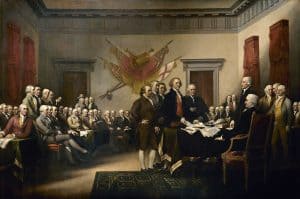
I get the sense that on days like Independence Day and on other occasions when we think of the Founders, more Americans are thinking, even subconsciously, “They were just a bunch of privileged white males. Yeah, they said all men are created equal, but they really didn’t mean it!” This reflects
-
-
- the prejudicial attitudes of racism and sexism,
- a very, very simplistic view of history,
- a willingness to ignore reality in favor of jumping on and riding a contemporary cultural bandwagon, and, however unintentional,
- an air of superiority that is quick to judge and slow to understand.
-
I can tell you with absolute confidence: the Founders of the United States of America absolutely did mean what they said in the Declaration of Independence. No, they didn’t apply it with 100 percent consistency, but neither have we applied all we say we believe to that extent, either.
Coming to Terms with Frustrating Realities
Yes, some owned slaves. Others didn’t. Slavery, we so often forget, was the order of the day. It was part of the fabric of society when these men were born. I’m not condoning this; but I’m saying it is a historical fact. Despite this reality, most of these men were Christians, and virtually all of them held to a biblical worldview.
How could any of these men have been Christians and slave owners at the same time?” some may ask. Some may even start to try to make the case it never has been possible for anyone to have been a slave owner and a true Christian. Without even slightly condoning slavery (I believe the institution should be forever condemned), I would simply remind all of my readers that Philemon, whom Paul called “our beloved friend and fellow laborer,” and to whom he wrote,
4 I thank my God, making mention of you always in my prayers, 5 hearing of your love and faith which you have toward the Lord Jesus and toward all the saints, 6 that the sharing of your faith may become effective by the acknowledgment of every good thing which is in you in Christ Jesus. 7 For we have great joy and consolation in your love, because the hearts of the saints have been refreshed by you, brother
…was a slave owner.
It’s OK to be uncomfortable with this reality, but it isn’t OK not to wrestle with it, or to reject it in disbelief, or to reject Christianity over it! History is ugly! It is inconvenient. It is complicated! Yet within its mines we can discover great nuggets of truth and wisdom! Slavery was the order of the day in Paul’s day, just as it would be hundreds of years later, in 18th-century North America.

There’s something else. While Christianity has answers for the world’s problems — real, substantive answers — they aren’t simplistic. Like Jesus, biblical teachings come down to our own level and arm us with truth to help us grapple with tough issues in the real world. As we do, our actions have a reformative effect on the world.
In the end, the Bible will not answer all our questions to our complete satisfaction. (Thankfully, though, it answers the most important ones with great clarity.) We can come to a greater understanding of the Bible’s approach to issues like slavery as we dig more deeply into both Scripture and history. There is a great deal to learn (also go here and here).
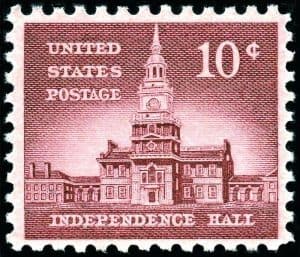
While the Bible doesn’t directly condemn slavery, it’s teaching on the nature of humanity has powerfully fueled anti-slavery movements throughout history. In fact, a biblical principle upheld in 1776 in Philadelphia has proved to be slavery’s greatest nemesis. It arrived in the form of a beautifully crafted expression of biblical truth—
We hold these truths to be self-evident, that all men are created equal, that they are endowed by their Creator with certain unalienable Rights, that among these are Life, Liberty and the pursuit of Happiness. —
Though Long Departed, Our Wise Founders Still Have Much to Teach Us
Currently, I am working on a series of Bible studies that will examine 10 biblical principles embedded in the Declaration of Independence. Here is the Word Foundations article that will provide a “map” for the series. Soon I will release all the material for individual and group study.
One of the elements the series will explore is the meaning of the word entitle in the Declaration. I offer this brief article as a sample from the forthcoming curriculum.
We need to say just a few things about the Founders’ use of the word entitle. The Declaration of Independence declares,
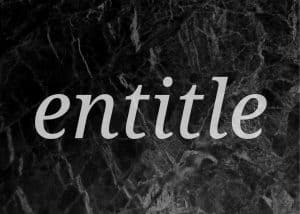 When in the Course of human events it becomes necessary for one people to dissolve the political bands which have connected them with another and to assume among the powers of the earth, the separate and equal station to which the Laws of Nature and of Nature’s God entitle them, a decent respect to the opinions of mankind requires that they should declare the causes which impel them to the separation.
When in the Course of human events it becomes necessary for one people to dissolve the political bands which have connected them with another and to assume among the powers of the earth, the separate and equal station to which the Laws of Nature and of Nature’s God entitle them, a decent respect to the opinions of mankind requires that they should declare the causes which impel them to the separation.
The meaning of the word entitle as the Founders used it in this context is a far cry from the notion so often employed when people use the term today. Frequently today, the word is used to convey the idea of laying a claim to or having a right to something the government offers or “provides” — and this is the primary, if not the only, emphasis.
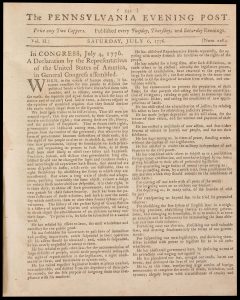 The men who authorized the Declaration and the severing of political ties from Great Britain that the Declaration affirmed looked to “the Laws of Nature and of Nature’s God” as the basis for the recognition to which the new nation would be entitled. The thirteen colonies now were becoming the thirteen states and a new country — The United States of America. That country, under God’s laws, would hold a just claim to be seen by its mother country and all the other nations on the earth as “separate and equal,” not inferior. Put slightly differently, the new nation would have the right to “assume” a “separate and equal” position or “station” among the countries of the world.
The men who authorized the Declaration and the severing of political ties from Great Britain that the Declaration affirmed looked to “the Laws of Nature and of Nature’s God” as the basis for the recognition to which the new nation would be entitled. The thirteen colonies now were becoming the thirteen states and a new country — The United States of America. That country, under God’s laws, would hold a just claim to be seen by its mother country and all the other nations on the earth as “separate and equal,” not inferior. Put slightly differently, the new nation would have the right to “assume” a “separate and equal” position or “station” among the countries of the world.
This entitlement has a parallel in the “unalienable rights” to which the Declaration soon would refer. Another important point is that both the rights and the recognition or respect that God grants both individuals and nations cannot be separated from responsibilities that also are God-given. The Declaration mentions one of those responsibilities immediately: “a decent respect to the opinions of mankind requires that they [the people severing ties they have had with one nation to form another] should declare the causes which impel them to the separation.”
In this series of studies, we will explore the meaning and the nature of the rights the Founders upheld in America’s “birth certificate.” We will see that these God-given rights inherently demand responsibilities, both of citizens and the government.
For now, notice that the 56 signers of the Declaration of Independence were not referring at all to government entitlements, but to rights granted under “the Laws of Nature and of Nature’s God.” We need to learn from their wisdom and actions! They got it right!
Be looking for information about
Principles of Liberty: Ten Biblical Truths Embedded in the Declaration of Independence
…coming soon!
Copyright © 2020 by B. Nathaniel Sullivan. All rights reserved.
Unless otherwise indicated, Scripture has been taken from the New King James Version®. Copyright © 1982 by Thomas Nelson, Inc. Used by permission. All rights reserved.
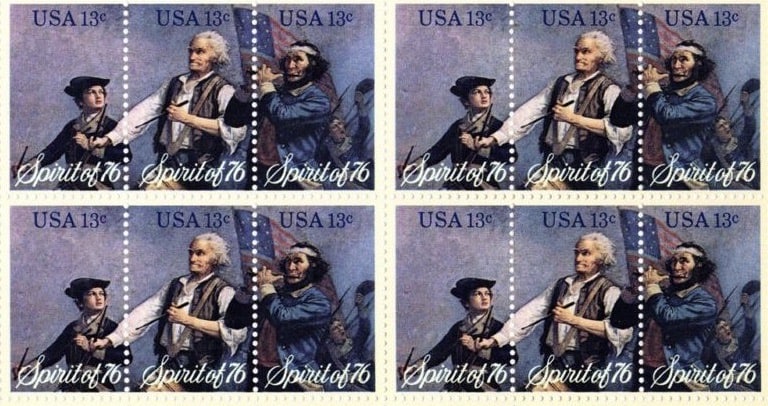
Be First to Comment